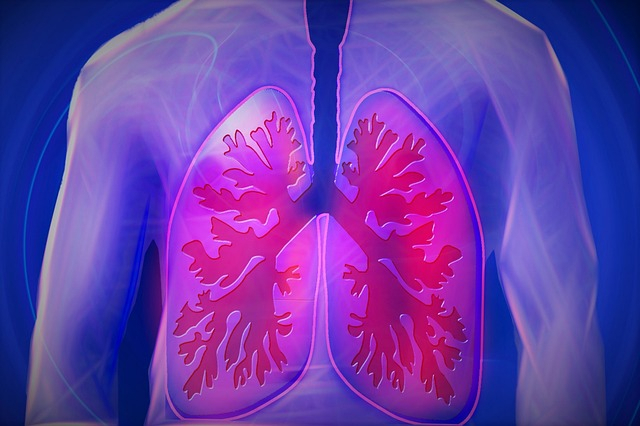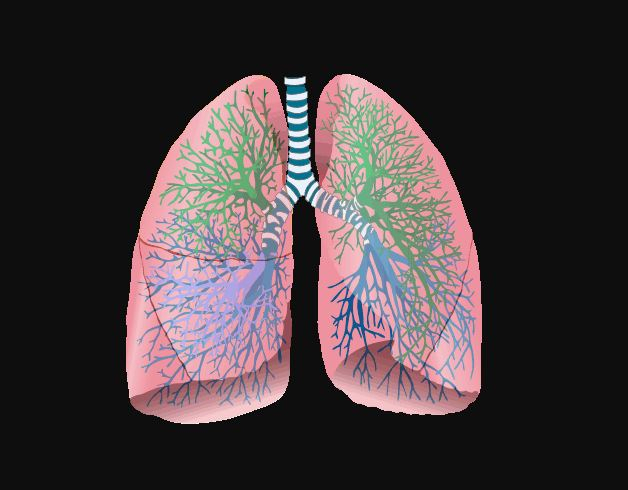Smoking is a well-known cause of cancer, with the ability to trigger various kinds of cancer. One cancer in particular, lung cancer, is largely caused by smoking. However, a new study finds that quitting smoking not only helps in reducing the risk of developing lung cancer but also helps in increasing the presence of genetically healthy cells within the linings of the lungs.
Importantly, the study by scientists from the Wellcome Sanger Institute and University College London (UCL), found that kicking the butt reduced the damage caused. They believe that ditching the habit could help repair the damage caused to the lining of the lungs. The change in the proportion of healthy cells from damaged cells may help in the protection against cancer.
"Our study is the first time that scientists have looked in detail at the genetic effects of smoking on individual healthy lung cells. We found that even these healthy lung cells from smokers contained thousands of genetic mutations. These can be thought of as mini time-bombs waiting for the next hit that causes them to progress to cancer," said Dr. Kate Gowers, joint first author of the study, in a statement.
Mutations at a genetic level in cells
Genetic errors are created due to the damage to the DNA of the cells forming the lining of the lungs. Some of these mutations are known driver mutations — changes providing the cells the advantage of growth — whose accumulation causes cells to become cancerous and divide unmanageably.

For the study that focused on the genetic effects of smoking on normal or non-cancerous cells, the scientists examined the lung biopsies of 16 people. They included smokers, former smokers, children and individuals who had never smoked. The DNA of 632 individual cells obtained from the biopsies were sequenced. The patterns of genetic alterations in these normal cells from the lungs were also analysed.
When compared to non-smokers, 9 out of 10 lung cells in active smokers, in spite of not being cancerous, exhibited nearly 10,000 mutations or changes. The mutations were a direct result of the chemicals present in tobacco smoke. At least one cancer-driver mutation was found in over a quarter of these damaged cells, evidencing increased risk of lung cancer in smokers.
Undamaged cells in smokers as good as those in non-smokers
Surprisingly, the researchers found that in people who quit smoking, a significant number of cells within the lining of the airways were not genetically damaged. In genetic terms, these undamaged cells were as good as those found in non-smokers. Also, they showed decreased genetic damage due to smoking and were geared towards lower risk of becoming cancerous.
Another unexpected finding was that in those who quit smoking, these healthy cells were present four times more than in active smokers. It could also be said that they constituted 40 percent of total lung cells in former smokers.

"What is so exciting about our study is that it shows that it's never too late to quit - some of the people in our study had smoked more than 15,000 packs of cigarettes over their life, but within a few years of quitting many of the cells lining their airways showed no evidence of damage from tobacco," said Dr. Peter Campbell, joint senior author of the study.
Cells with the ability to replenish the lining of lungs
The study found that the healthy cells in the lung had the capacity to repair the lining of the airways in former smokers and aid in the protection against lung cancer.
"It's a really motivating idea that people who stop smoking might reap the benefits twice over - by preventing more tobacco-related damage to lung cells, and by giving their lungs the chance to balance out some of the existing damage with healthier cells," said Dr. Rachel Orritt, Health Information Manager at Cancer Research, UK.
However, the study also found that damage is caused deep within the lungs due to smoking, and can lead to a chronic lung disease known as emphysema. In spite of quitting the habit, the damage caused was irreversible.,

Importance of the study
An estimated 229,000 lung cancer cases will be diagnosed in 2020, said the researchers. Also, lung cancer deaths are the most common forms of cancer deaths in the UK, contributing to 21 percent of all cancer deaths. Nearly 72 percent of the annual lung cancer cases out of the 47,000 are caused by smoking. Hence the significance of the study.
Highlighting the importance of understanding the regenerative nature of the healthy lung cells, Sam Janes, joint senior author of the study, stated, "Further research into this process could help to understand how these cells protect against cancer, and could potentially lead to new avenues of research into anti-cancer therapeutics."









